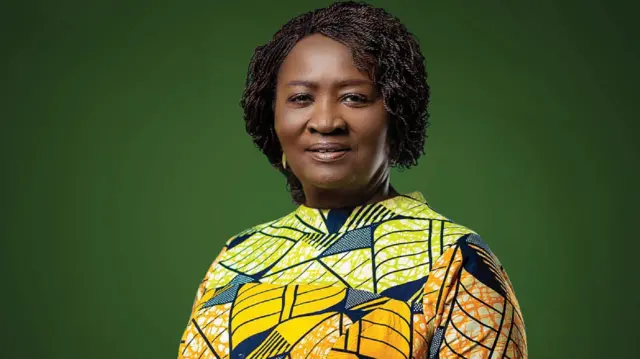Cape Coast, Ghana – Amidst vibrant cultural displays and a profound historical ambiance, Vice President Professor Naana Jane Opoku-Agyemang officially inaugurated the 16th edition of the Pan African Historical Theatre Festival (PANAFEST) 2025 in Cape Coast. During her opening address, she passionately called upon African leaders to harness the immense potential of their youth for the continent’s development.
Emphasizing that governments across Africa, like Ghana’s current administration, must make deliberate investments in youth-centered policies, she stressed, “When we say that the youth is our future, we need to mean it and it must reflect in everything that we do.”
This year’s PANAFEST, themed “Let us speak of reparative justice – Pan African artistic activism,” unfolded with significant pomp and pageantry at the historic Jubilee Park. The event saw the Oguaamanhen and other chiefs from the Oguaa Traditional Area, alongside Paramount Chiefs from other Traditional Areas in the region, lead a colorful procession through Cape Coast’s principal streets, guided by the seven Asafo Companies to the ceremonial park.
The park itself was adorned with the national colors of red, gold, and green, perfectly complemented by the white attire and vibrant apparel of traditional leaders, dignitaries, and hundreds of celebrants, creating a truly picturesque scene. A vivid re-enactment of the slave trade, culminating in freedom, reignited the spirit of Pan-Africanism and a renewed commitment to African liberation and development among attendees, particularly those from the Diaspora.
Nana Amba Eyiaba I, Queen Mother of Effutu and Krontihemaa of Oguaa Traditional Area, performed a sacred ritual to welcome African returnees, marking them with white clay to symbolize victory and joy.
The festival’s diverse activities include musical, dance, and fashion concerts, spirituality and interfaith dialogues, colloquiums, artist workshops, a Pan African food fair, and a women’s day celebration.
The Call for Reparative Justice and Youth Empowerment
Addressing the festival’s theme, the Vice President highlighted that reparation carries significant moral, political, and economic implications. She argued that the quest for reparation must extend beyond financial demands, focusing instead on the holistic liberation and development of African people. “We ought to live like other people also live; and our level of confidence, see ourselves in the future and not to be afraid,” she stated.
Prof. Opoku-Agyemang strongly advocated for greater youth participation in PANAFEST and similar festivities to both inform and empower them for the present and future, stressing the critical importance of teaching and learning history. “History must teach us. It will only teach us when we do the hard work of telling our own story. When we continue to tell our story as others have told us, we will not make the progress we are supposed to make,” she asserted. She also championed a more inclusive approach to Pan-Africanism, one that embraces Africans globally rather than focusing on only a select few regions.
A Spiritual Journey and Call to Nation Building
Osabarimba Kwesi Atta, the Oguaamanhen, movingly recounted the horrors and cruelty endured by African ancestors. He described PANAFEST as not just a festival but a “spiritual journey, a homecoming and a platform for true healing, cultural expression and solidarity.” He emphasized that repatriation goes beyond the physical return of Africans in the Diaspora, encompassing economic, spiritual, intellectual, and cultural reconnection. “It is about creating an Africa where all Africans feel belonged and safe,” he added.
To that end, the Oguaamanhen reaffirmed the Oguaa Traditional Council’s commitment to collaborating with the government, cultural institutions, and the Diaspora community to make repatriation more meaningful. This includes creating safe and sustainable spaces for investment by Diaspora returnees and fostering lasting economic partnerships between local communities and Diasporan investors to stimulate growth and employment. “Development is no longer a dream; it is a shared responsibility,” he stressed, urging the Diasporan community to see themselves as “indigenes but not strangers,” affirming that “your place in our future is not optional, it is essential.” He concluded by exhorting, “Let us move from nostalgia to nation building; from return to restoration.”
Madam Abla Dzifa Gomashie, the Minister for Tourism, Arts and Culture, echoed the calls for reparative justice, noting that reparation “demanded a reckoning of history and a restructuring of the future.” She stated that it demanded “rewriting the narrative and restoring dignity to our people both at home and in the Diaspora.” She believes this can be achieved “through art, culture, storytelling and music, through fashion and films, dance and drumming, through the cultural and creative industries which are tools for resilience, remembrance and reclamation.”
Madam Esi Sutherland-Addy, Chairperson of the Board of Trustees for PANAFEST, lauded Prof. Opoku-Agyemang for her consistent promotion of PANAFEST since the 1990s through her extensive writings and research.


